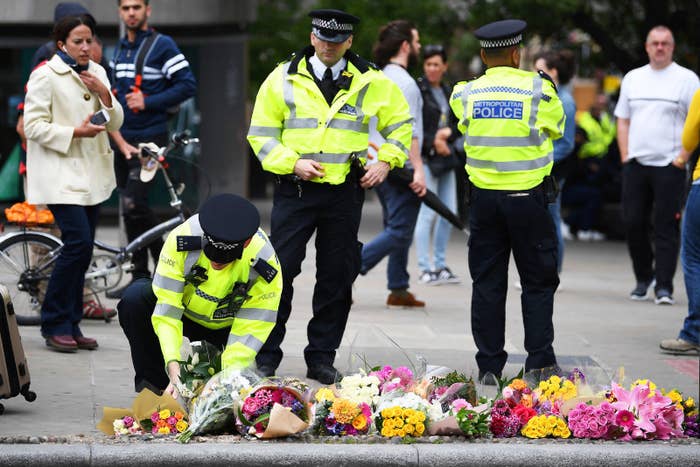
A former Metropolitan police commander, who led the team that unravelled the failed 21/7 bomb plot in London, says community policing cuts have made it harder to prevent terrorist attacks like London Bridge.
Bernie Gravett, who was divisional commander of Westminster police for the Met, told BuzzFeed News the community policing units essential in finding the bombers in July 2005 had been cut from teams of five to just a single constable.
He was one of several former senior police officers who spoke to BuzzFeed News about the devastating impact that budget cuts are having on forces’ ability to prevent terrorism. One warned that forces are so depleted that if a Nice-style attack happened outside London it could take up to 20 minutes for police to respond.
Police budgets have been reduced by more than 20% since 2010 in England and Wales, according to Home Office figures.
The slashing of budgets has angered many in the police, with one retired detective sergeant telling BuzzFeed News that Theresa May was “absolutely loathed” by officers for the cuts she presided over as both home secretary and prime minister. Labour leader Jeremy Corbyn has called for May to resign over the impact of police cuts.
After a speech in London on Monday, May was questioned several times by journalists about cuts to the police. She hit back at Corbyn, saying: “Safeguarding the security of our country takes leadership. That is why, since 2010, in the face of a growing threat, we have protected the budget for counterterrorism policing and increased the resources available to the security and intelligence agencies.
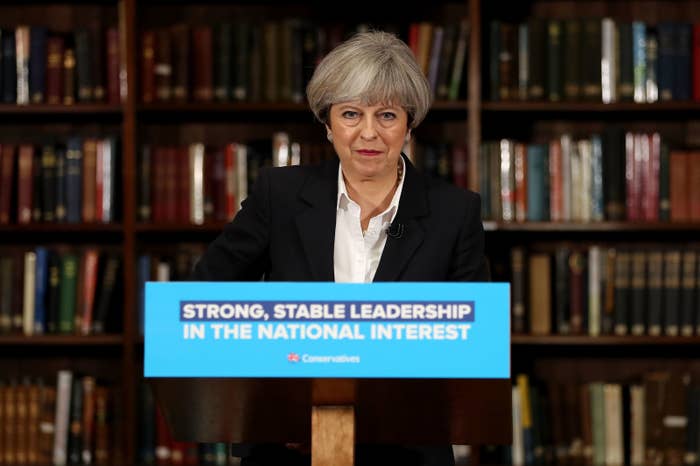
“It is why since 2015 – when Jeremy Corbyn’s front bench was arguing for the police to be cut by a further 10% – we have not cut the police but protected their budget."
But Gravett, who is now a policing consultant after retiring in 2011, said the cuts to police budgets “clearly have an impact on the ability to proactively police” and prevent terrorism.
He added: “You’re having police forces completely restructured at a cost to community policing. Because the numbers are falling so much, they’re having to restructure to keep officers on the front line. Neighbourhood police teams are the sufferer.
“A classic case is the terror attack at the weekend. Who’s in the community and working with it to provide somebody who’s collecting community intelligence?
“Someone responding to a 999 call, they don’t have time to sit down with the public and have a cup of tea. They don’t have time to talk to people on the streets.
“We’re losing proper patrols and neighbourhood engagement and it’s from that level of engagement where you collect information about problems within the community. Community policing used to be the bedrock of English policing and it’s a model we’ve sold around the world, but that’s the policing we’re losing because of the cuts.”
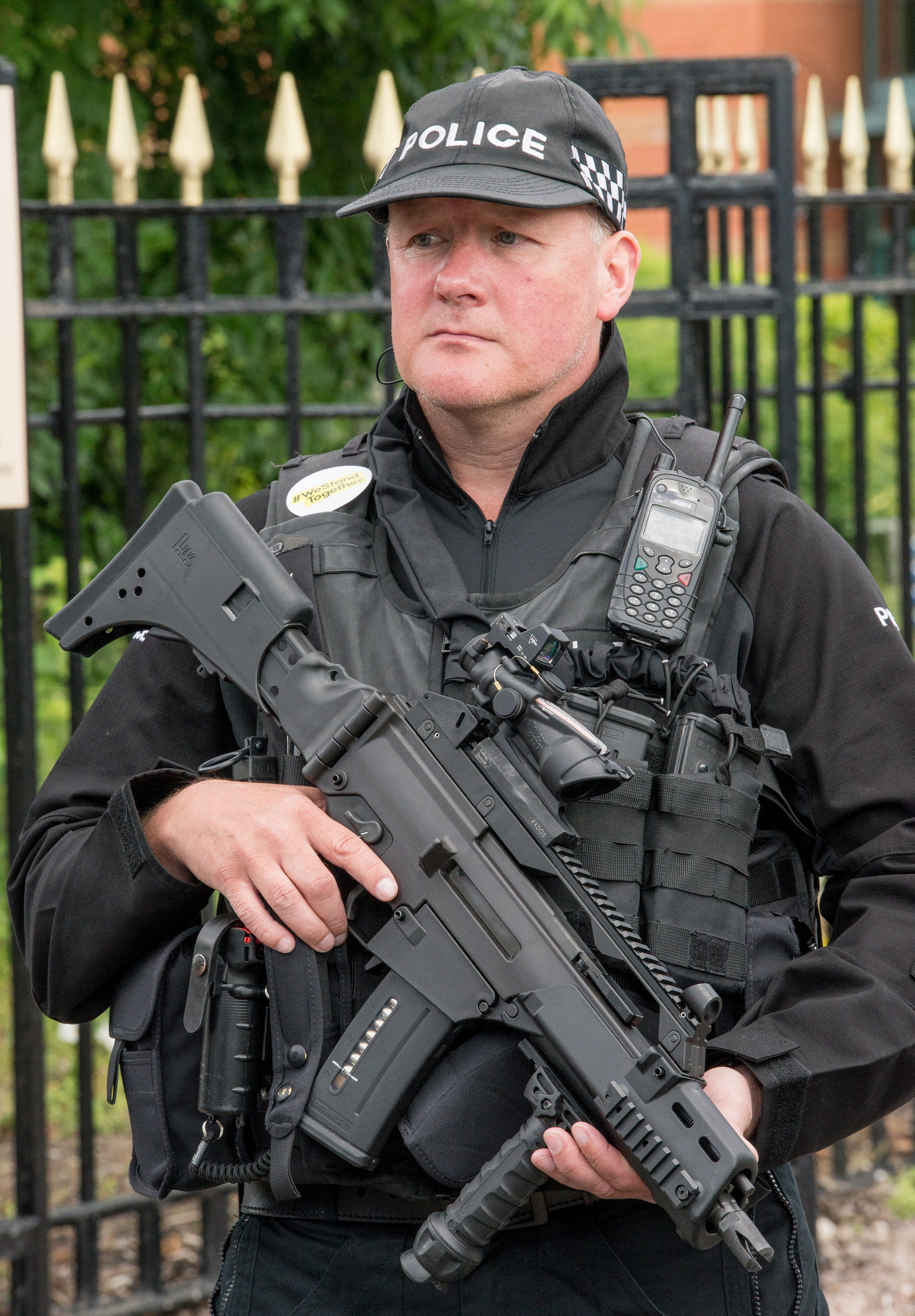
Budget cuts have had a direct impact on the size of police forces around the country, with the number of officers in England and Wales shrinking from 144,000 in 2009 to 122,000 last year.
Police community support officers (PCSOs) have also been drastically reduced, going from 16,814 to 10,551 in the same period. In London, the fall in PCSOs has been even more dramatic, going from 4,607 to 1,487 under Theresa May, according to the PCS Union.
Gravett said that when he was chief inspector at Marylebone in the early 2000s, neighbourhood policing teams were so strong that officers manned a stand inside the Central London Mosque at every Friday prayers to build relationships. “They could listen to issues raised in the Muslim community. When I wanted to know what was going on in the mosque I would go to my neighbourhood policing team,” Gravett said.
Now community policing has been cut to almost nothing, he argues. “Every neighbourhood policing team at that time had a sergeant, two police constables, and three police community support officers and I had the ability to bolster teams if I wanted to. Now there’d be one constable, no sergeant, and no leadership."
Gravett said that PCSOs were a big part of intelligence gathering and building trust in the community.
“The bombers of 21/7, they were identified by one of my PCSOs. The entire team of bombers was identified by a PCSO who had dealt with a fight on Oxford Street between one of the bombers and a member of the Jewish community.
“When the Met published the photos of the four bombers fleeing the scene because their backpacks didn’t go bang, he ID’d the one and then we looked at the intelligence and found the others.
“That PCSO role no longer exists, so it won’t happen again. There’s a clear case for you that community policing is the start of everything. It comes down to money and cuts.”
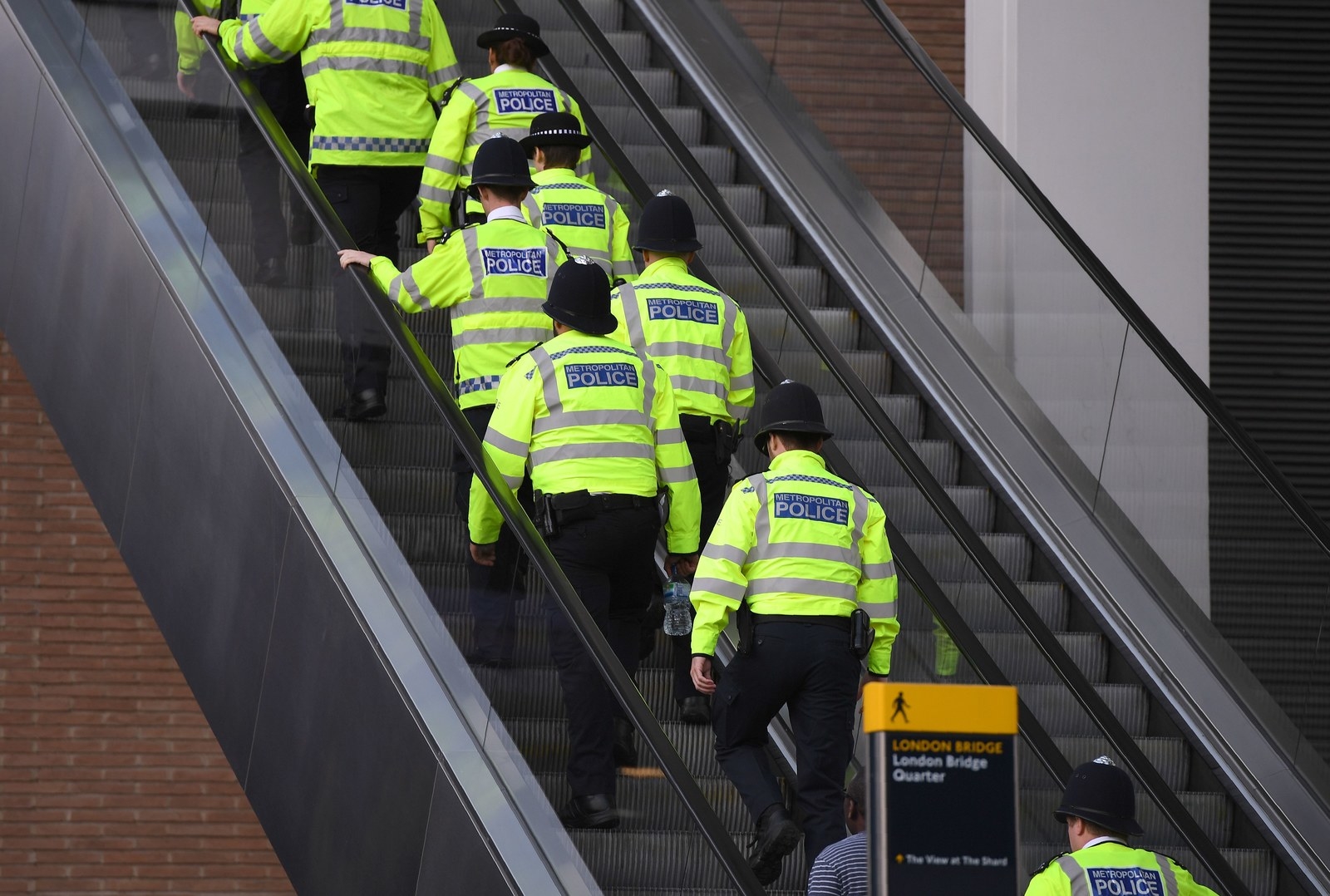
A Unison survey of almost 1,000 PCSOs in England and Wales last year found more than 57% had stopped performing core neighbourhood policing duties and been redeployed to work that kept them off the beat. More than three-quarters said their neighbourhood policing team has become less visible since they started working as a PCSO.
Gravett also warned that changes to training and recruitment would damage the police’s ability to tackle serious terror incidents.
“Originally policemen got six months' training delivered by police officers – until about five years ago. What aspiring police officers do now is an online course by private trainers… You get a certificate and then you can apply to work. It varies from police force to police force but some then do 12 weeks' training and some 19 weeks.
“The reality is the quality is not the same as getting six months' intense training by police officers who’ve done the job before. Then you’ve got direct entry – don’t even start me on that.
“There’s no way on earth a direct-entry superintendent who’s been working in private industry could’ve managed the incident this weekend or the one in Manchester. It takes 20 years of hard graft and learning to become a superintendent.
“It’s not just numbers, it’s the other changes that cuts have forced upon us. We’ve completely changed the way we recruit people that will impact on our operational capability in five to ten years' time."
The speed of response at London Bridge will not be sustainable, Gravett argues, because officers were on extra overtime in the wake of the Manchester attack.
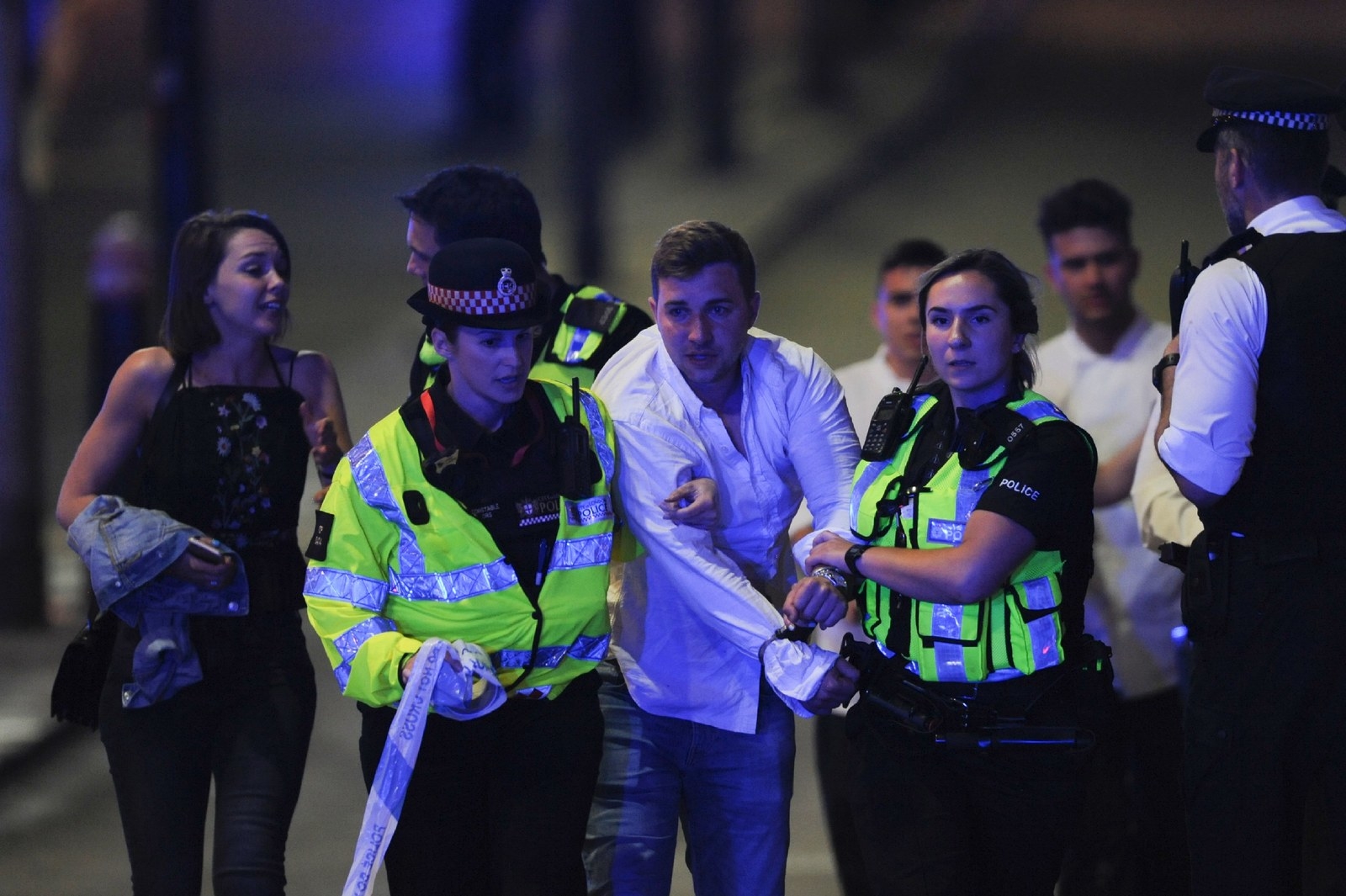
“I’m exceedingly proud of the response that was managed in London this weekend,” he said. “From the 999 call to when the terrorists were shot was eight minutes. But that’s not sustainable because the police who were on duty this weekend were on overtime. Since Manchester there’s extra cops on the street to reassure the public. Police officers have been put on 12-hour shifts and overtime.”
He said London had been more protected from the cuts but that elsewhere in the country the picture is far worse. “We should have gone from 32,000 to 27,000 [officers] if London had implemented the cut, but Boris Johnson said ‘Not on my watch' – and Sadiq Khan has said the same.”
Khan, the mayor of London, warned back in January that if the government continued to underfund the police it would put Londoners at risk.
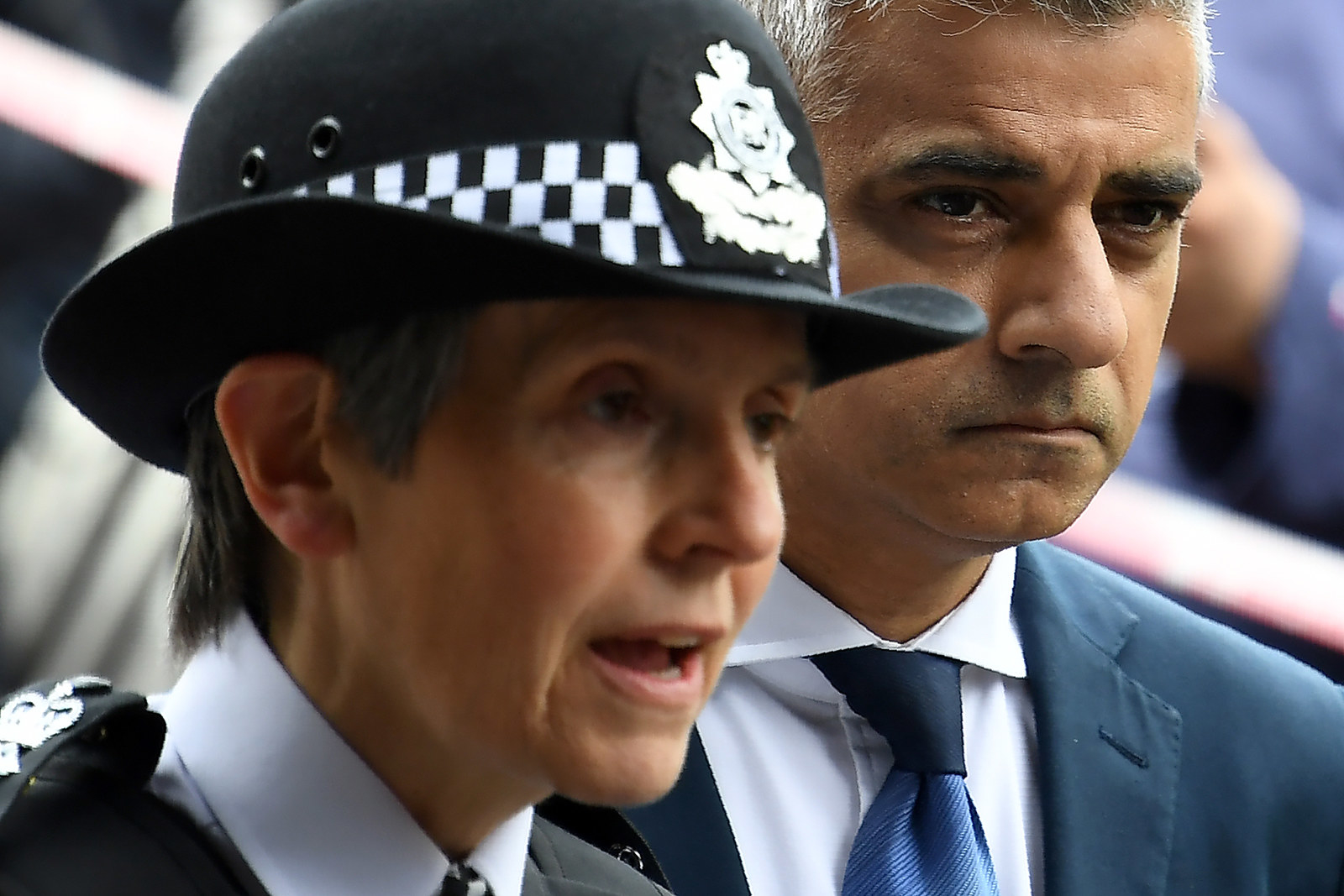
He said: “This year, I have done everything I can to protect police officer numbers – including making the very difficult decision to raise council tax. But if the government subjects London’s police service to any further cuts, it will become near impossible to maintain the number of police on our streets.
“My message to the government today is clear: Londoners’ safety will be put at risk if police funding is cut any further, and ministers must listen to our concerns.”
Chris Hobbs is a retired detective sergeant who served with the Met for 32 years, spending time in Special Branch and working on Operation Trident, a unit set up to tackle gun crime. He told BuzzFeed News that cuts to community policing were putting communities at risk of terror attacks.
"In terms of terrorism – and crime – what's happened is community policing is suffering hugely," he said. "Police are withdrawing from contact with the community.
"It is that contact with communities – particularly in areas where there is deprivation, in areas where there is jihadism – that is so important.
"Many police stations have been shut, and it's not just about front-counter services being taken away. What Theresa May is doing is basically taking police away from communities, and that's where we need them to be, especially when you're being faced with this sort of threat.
"If you're not in the community you're not getting the intelligence, the information that you should get. The fewer officers you have on the ground, the fewer officers there are to gather intelligence. There's not the intelligence flow there once was."
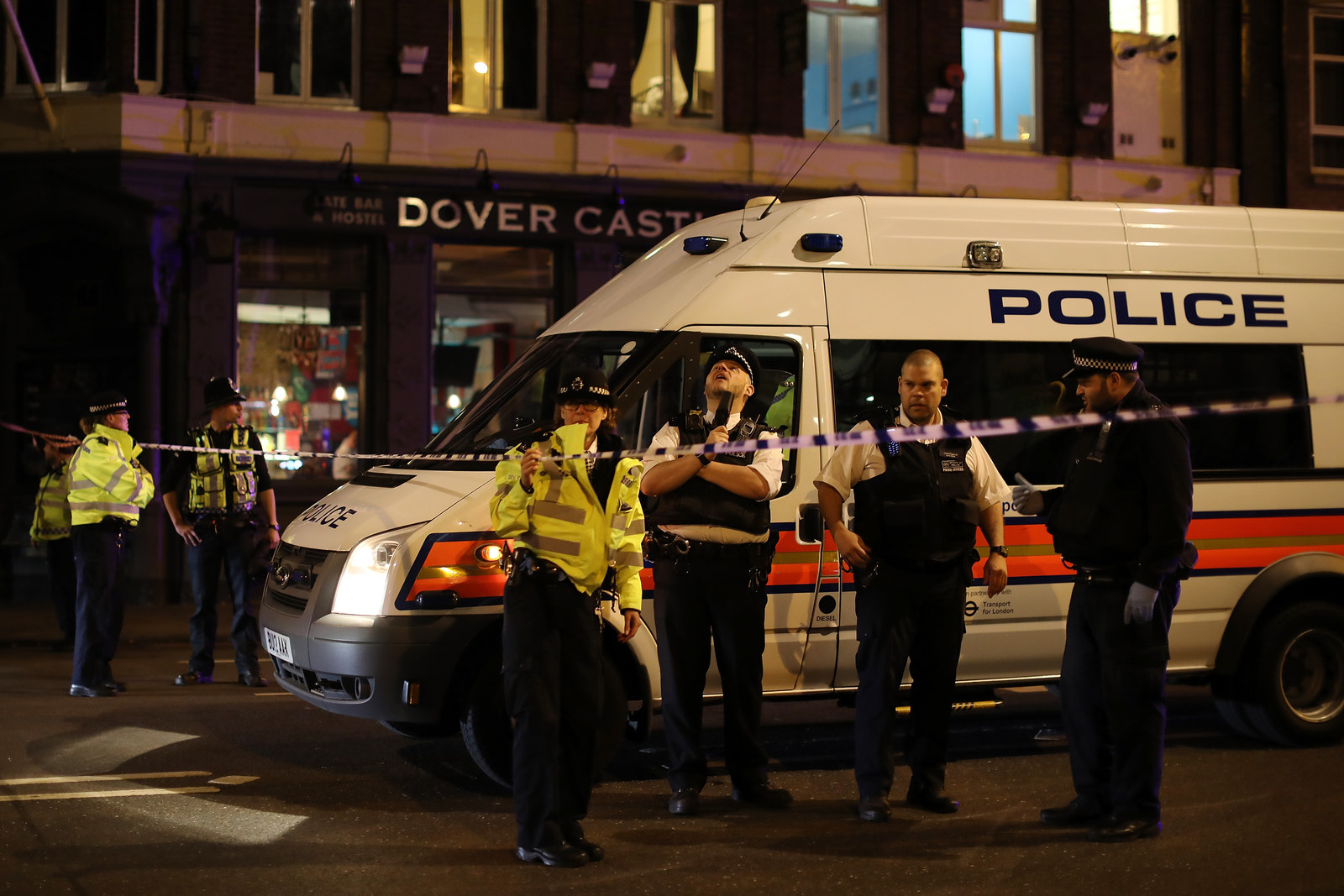
Hobbs said that he believes further police cuts will put the public at even greater risk of future terror attacks.
He said: "The government says police funding has been protected but that clearly isn't the case. The Met is looking at cuts of £400 million, Greater Manchester Police is talking about abandoning community policing altogether.
"It's going to be a disaster. It's almost as if what the government wants is to divorce the police from the public, that's what's happening. They're becoming more and more remote.
"Police will be seen as remote authority figures as they are in other countries, which isn't what British policing is all about."
Hobbs said that communities outside the cities are at even greater risk, as should an attack take place in a town or holiday resort, police could be 20 minutes away from the scene, with firearms officers possibly taking even longer. In London on Saturday, the attackers were contained within eight minutes of police receiving the first call.
"In other places in the country there will be a much slower response by armed police," he said. "In some areas armed officers are saying, 'There were two units to cover two counties last night.'
"Helicopters are being cut – last night there were only two helicopters to cover the whole of the UK. Astonishingly, explosive dogs have been cut back.
"There's huge concern as well that outside the major cities – in substantial towns and resorts – it could be 15 or 20 minutes before you get an unarmed officer there, never mind an armed officer.
"In the Isle of Wight armed officers double up as traffic officers, so they would have to go and unlock the cabinet, get their guns out.
"If we had a Nice-type truck attack imagine the carnage, they could be running amok and armed police could be 15 or 20 minutes away. We'd see a bigger death toll than we're seeing at the moment because armed police won't be there to put an end to it."
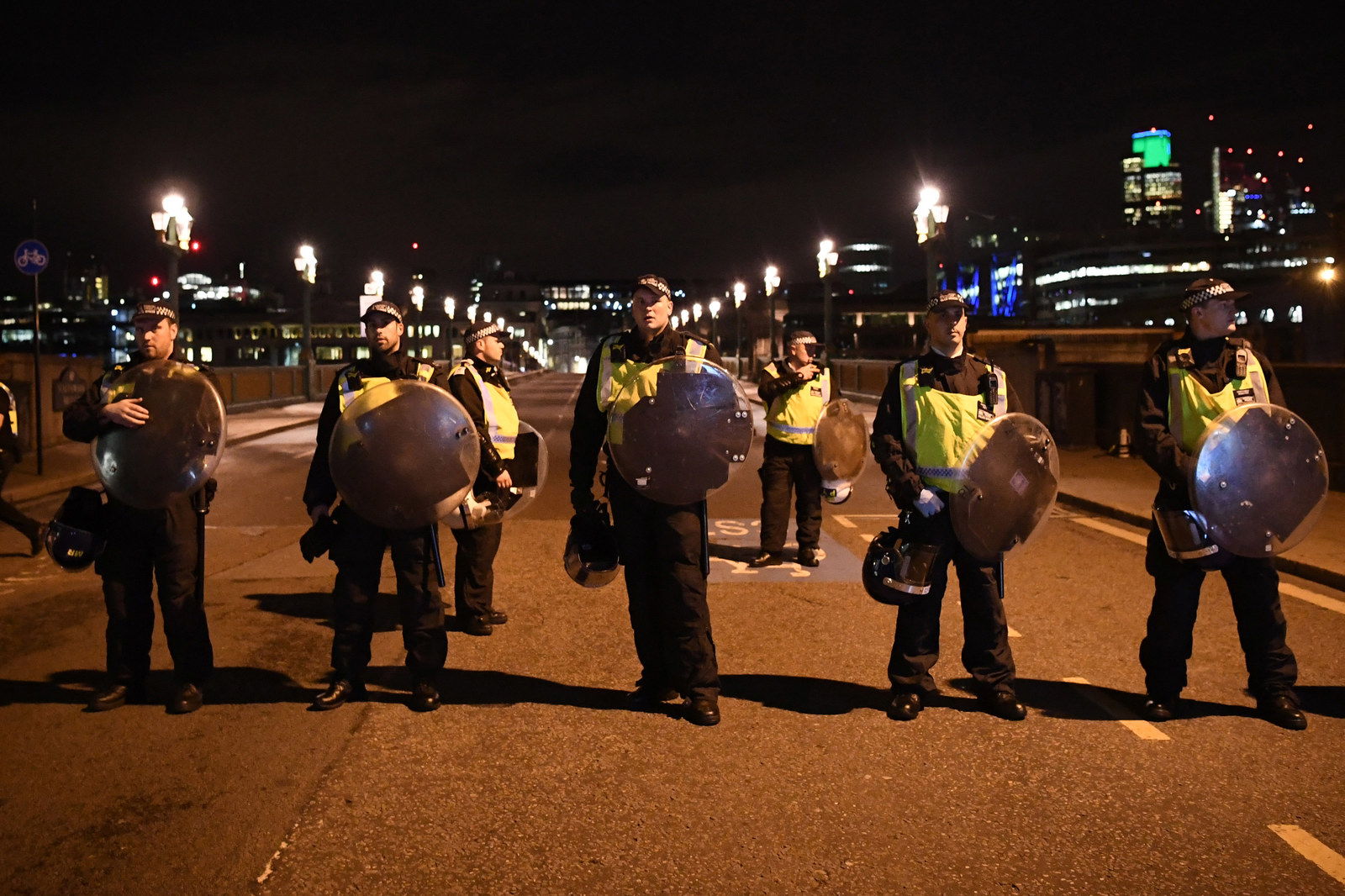
Hobbs said that police officers lay most of the blame on the shoulders of May, who presided over cuts both as home secretary and prime minister.
"Basically she's loathed by the police, absolutely loathed," he said. "It's hard to put into words the contempt police officers have for her. Officers I know have said if they die in service they don't want her anywhere near their funeral."
He added: "I think what's happened is that, before Manchester, police cuts weren't an election issue and it was quite frustrating for police officers, retired police officers, the police community.
"Then we had Manchester and all of a sudden people started asking questions about police cuts, police numbers – then it faded away again. Then we had this atrocity around London Bridge and people started asking questions again. It's only really tragedy that's made it an election issue."
Graham Wettone, a retired sergeant who spent the last part of his career working in the intelligence unit at Scotland Yard, said cuts had "100% definitely" prevented police from stopping terror attacks.
He told BuzzFeed News: "You can't cut the police resources budget without having an impact on the prevention, detection, and deterrence of terrorism.
"They are having to just react to these attacks; they haven't got the resources to prevent them. They are preventing some attacks, they are clearly. They prevented five or six since Westminster and that's fantastic, but you look at all those agencies – police, security services – they've had cuts and that must have an impact on their ability to deal with information that comes in."
Wettone said that while perpetrators of recent attacks have been known to police, officers do not have the resources available to act immediately on every tipoff they receive.
"You move up and down the known scale by volume of information and how it's checked and verified," he said. "Somebody needs to physically check that. If they've been known before, if they've come to notice before, if there's only been one or two reports that will sit at very, very low level.
"They get information in, but you need to corroborate it, you need somebody to do that. If you reduce the number of police it takes longer to corroborate it.
"If it's something tangible – if you've seen your neighbour with big bags, nails, with a hire van parked out, they'll make time for somebody to check that, but there's not the amount of people available to watch everybody 24/7."
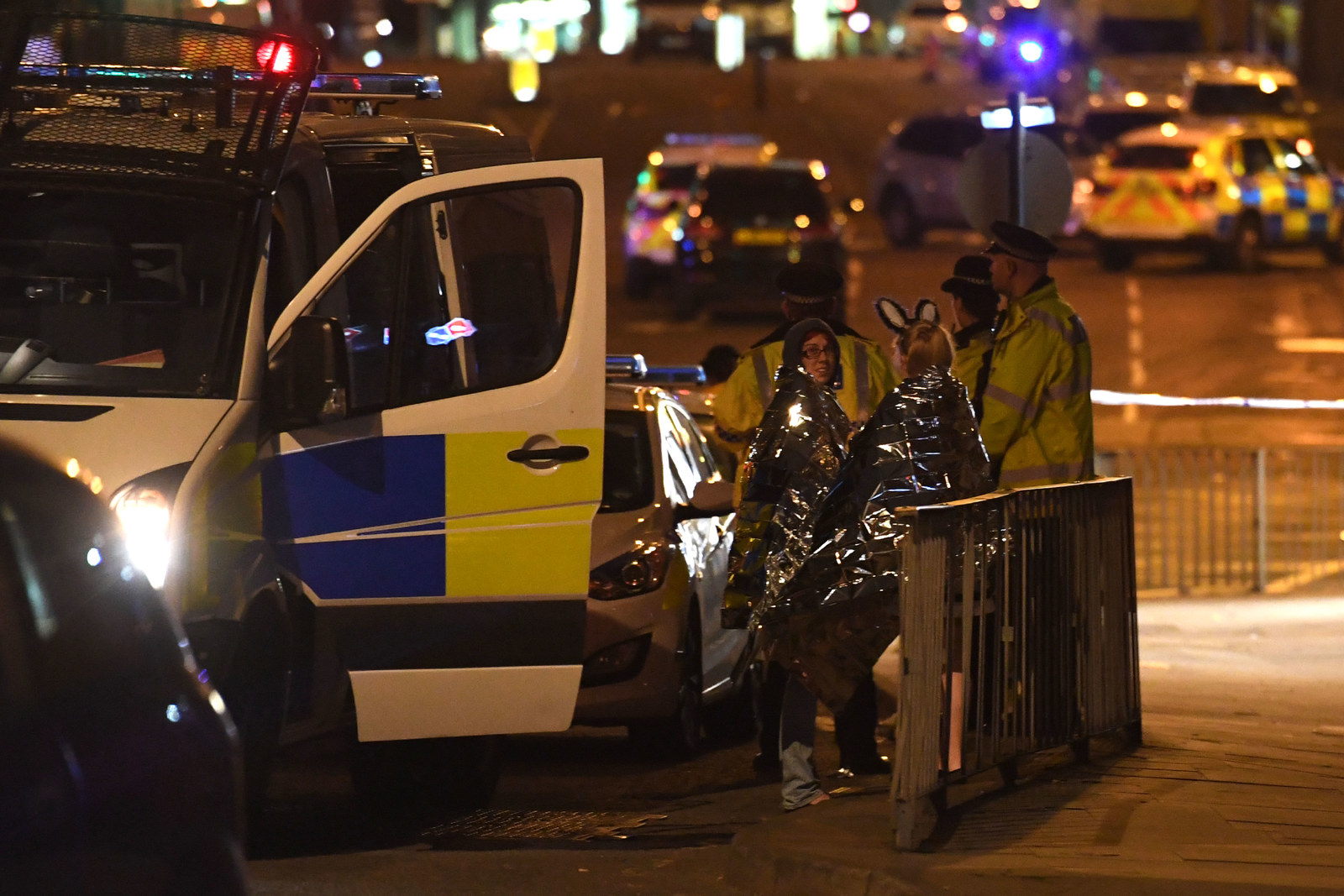
Wettone added that while Manchester bomber Salman Abedi was known to police, officers can only work within the confines of the law.
"It's not an offence to leave Libya and fly to the UK," he said. "There wasn't enough to arrest him when he landed in the UK and imprison him. He hadn't actually committed anything he would be arrested for when he landed back in the UK."
Wettone said that cuts to community policing mean police are losing out on a valuable source of information, whereby neighbourhood officers can provide intelligence that may build up a more detailed picture of a suspect.
He said: "They might start to notice something suspicious, people might tell them things, they might visit places of worship. If that report from them matches up with others it will become more of interest."
On community policing, he said: "It's key to preventing terror, it has to be. It's the foundation for it because it's an integral part of getting people out there and identifying suspicious behaviour.
"People speak to people they know and trust. That's all being eroded because community policing is going out the window, because community policing is being cut.
"You don't have those officers out in the community getting this grassroots information about people being radicalised. They're not out and about, they're just reacting to crime that comes in.
"That's why community policing has been eroded – you need to look at the number of officers you've got and the priority must be emergency response policing. If you've got to choose between a police officer walking past your house once a day, or coming when you call 999 because someone's kicking the back door in, given the choice between the two you have to defer to emergency response policing because that's when people need you, but you're losing that grassroots intelligence."
Like Hobbs, Wettone was scathing about May’s impact on policing. "She's had a catastrophic effect on policing and countering terror," he said. "She's going too far. She's affecting the level of impact police can have on serious crime and countering terror.
"She's got this wrong but she still won't admit she's got it wrong. What they have done is clearly not working and she doesn't seem capable of saying 'I will do more', and that's a concern for me.
"They're talking about extending control orders but that doesn't apply if they're running towards you with a knife, with a suicide vest, that isn't going to work.
"She has to listen to the people that actually know the business, and she's not – she's listening to government advisers and civil servants. They know what they need to be effective and they're not being given what they need, and that's why they're only partly effective."
Assistant Commissioner of the Met Police, Martin Hewitt said: "Neighbourhood policing is at the heart of our work and in maintaining strong links with our communities. I am delighted with the progress we have already made to increase the number of Dedicated Ward Officers across London."
A Conservative spokesperson said: "We are supporting the excellent work of the police by providing record funding for counterterror policing. We are providing £144 million over the next five years to increase armed policing, and providing an additional 1,900 officers across the three security agencies so that we can better respond to the threat we face from international terrorism, cyberattacks, and other global risks. And our record speaks for itself: Crime is down by a third since 2010.
"There’s a clear choice at this election: Theresa May managing Brexit and delivering security for ordinary working families, or Jeremy Corbyn negotiating Brexit, Diane Abbott in charge of our national security, and John McDonnell in charge of our economy."

